Effect of increased potassium intake on cardiovascular risk factors and disease: systematic review and meta-analyses
- PMID: 23558164
- PMCID: PMC4816263
- DOI: 10.1136/bmj.f1378
Effect of increased potassium intake on cardiovascular risk factors and disease: systematic review and meta-analyses
Abstract
Objective: To conduct a systematic review of the literature and meta-analyses to fill the gaps in knowledge on potassium intake and health.
Data sources: Cochrane Central Register of Controlled Trials, Medline, Embase, WHO International Clinical Trials Registry Platform, Latin American and Caribbean Health Science Literature Database, and the reference lists of previous reviews.
Study selection: Randomised controlled trials and cohort studies reporting the effects of potassium intake on blood pressure, renal function, blood lipids, catecholamine concentrations, all cause mortality, cardiovascular disease, stroke, and coronary heart disease were included.
Data extraction and synthesis: Potential studies were independently screened in duplicate, and their characteristics and outcomes were extracted. When possible, meta-analysis was done to estimate the effects (mean difference or risk ratio with 95% confidence interval) of higher potassium intake by using the inverse variance method and a random effect model.
Results: 22 randomised controlled trials (including 1606 participants) reporting blood pressure, blood lipids, catecholamine concentrations, and renal function and 11 cohort studies (127,038 participants) reporting all cause mortality, cardiovascular disease, stroke, or coronary heart disease in adults were included in the meta-analyses. Increased potassium intake reduced systolic blood pressure by 3.49 (95% confidence interval 1.82 to 5.15) mm Hg and diastolic blood pressure by 1.96 (0.86 to 3.06) mm Hg in adults, an effect seen in people with hypertension but not in those without hypertension. Systolic blood pressure was reduced by 7.16 (1.91 to 12.41) mm Hg when the higher potassium intake was 90-120 mmol/day, without any dose response. Increased potassium intake had no significant adverse effect on renal function, blood lipids, or catecholamine concentrations in adults. An inverse statistically significant association was seen between potassium intake and risk of incident stroke (risk ratio 0.76, 0.66 to 0.89). Associations between potassium intake and incident cardiovascular disease (risk ratio 0.88, 0.70 to 1.11) or coronary heart disease (0.96, 0.78 to 1.19) were not statistically significant. In children, three controlled trials and one cohort study suggested that increased potassium intake reduced systolic blood pressure by a non-significant 0.28 (-0.49 to 1.05) mm Hg.
Conclusions: High quality evidence shows that increased potassium intake reduces blood pressure in people with hypertension and has no adverse effect on blood lipid concentrations, catecholamine concentrations, or renal function in adults. Higher potassium intake was associated with a 24% lower risk of stroke (moderate quality evidence). These results suggest that increased potassium intake is potentially beneficial to most people without impaired renal handling of potassium for the prevention and control of elevated blood pressure and stroke.
Conflict of interest statement
Competing interests: All authors have completed the Unified Competing Interest form at
Figures
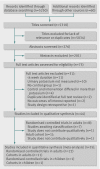
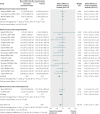
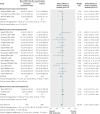
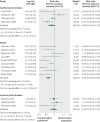
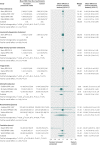

Comment in
-
[Reduction in blood pressure: lower sodium and increased potassium intake?--Known facts now once more scientifically strengthened].Dtsch Med Wochenschr. 2013 May;138(22):1152. doi: 10.1055/s-0032-1329049. Epub 2013 May 22. Dtsch Med Wochenschr. 2013. PMID: 23700300 German. No abstract available.
-
Public health: Effects of sodium and potassium intake on health outcomes.Nat Rev Nephrol. 2013 Jul;9(7):376-7. doi: 10.1038/nrneph.2013.107. Epub 2013 Jun 11. Nat Rev Nephrol. 2013. PMID: 23752886 No abstract available.
References
-
- World Health Organization. Global status report on noncommunicable diseases. WHO, 2010:164.
-
- World Health Organization. World health statistics 2012. WHO, 2012:176.
-
- World Health Organization. Global health risks: mortality and burden of disease attributable to selected major risks. WHO, 2009:62 (www.who.int/healthinfo/global_burden_disease/GlobalHealthRisks_report_fu...).
-
- Mackay J, Mensah G. Atlas of heart disease and stroke. WHO, 2004.
-
- Murray CJL, Lauer JA, Hutubessy RCW, Niessen L, Tomijima N, Rodgers A, et al. Effectiveness and costs of interventions to lower systolic blood pressure and cholesterol: a global and regional analysis on reduction of cardiovascular-disease risk. Lancet 2003;361:717-25. - PubMed
Publication types
MeSH terms
Substances
Grants and funding
LinkOut - more resources
Full Text Sources
Other Literature Sources
Medical
